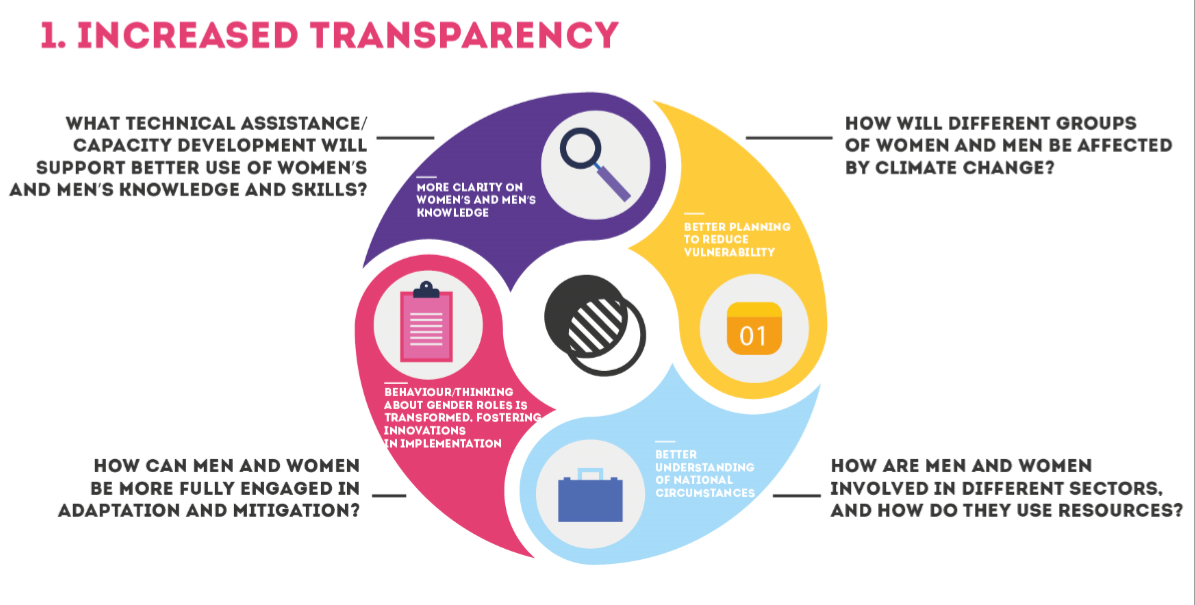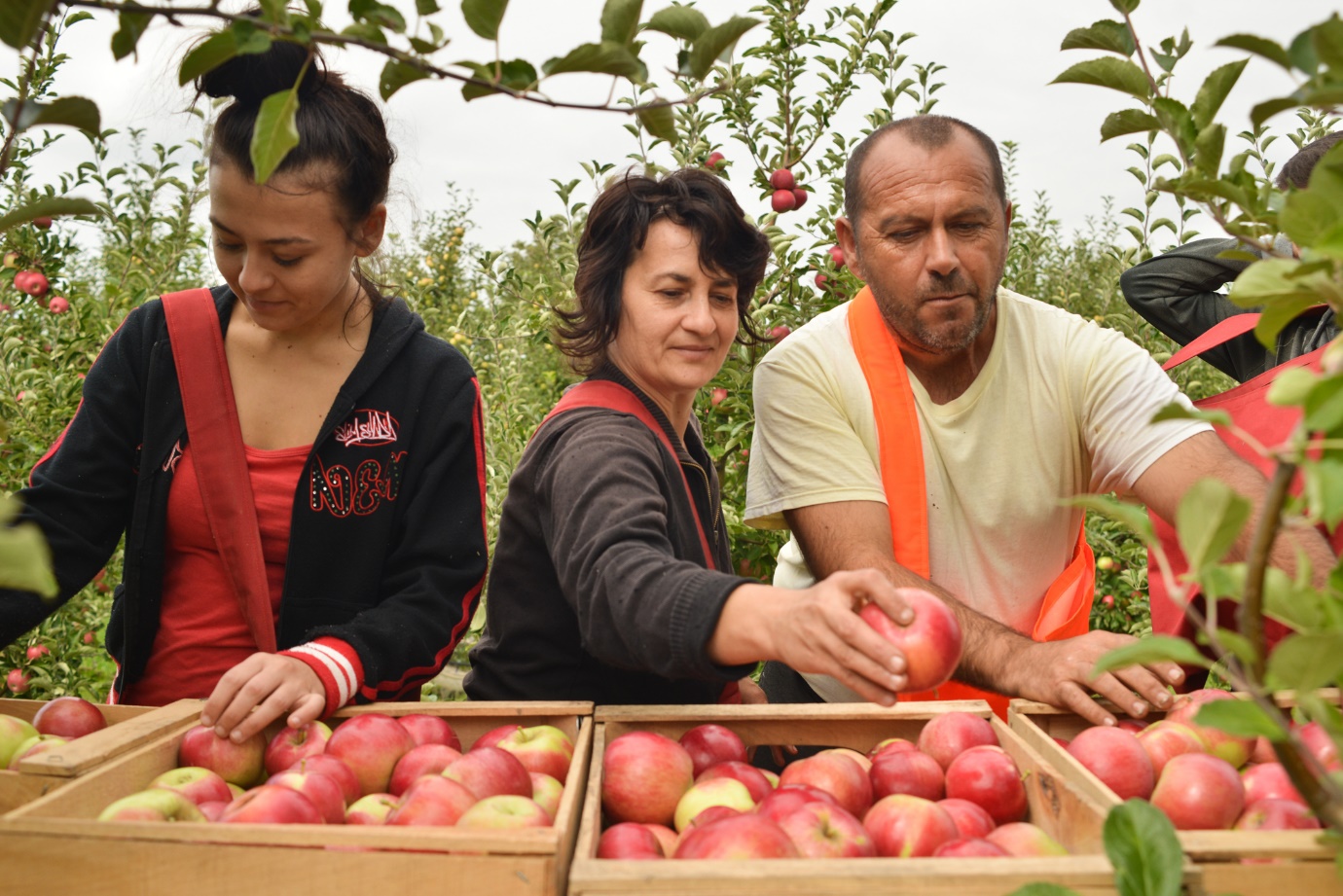‘What’s gender got to do with climate change?’ - A lot more than you might think
- {{"article.by"|translate}} Elena Grozdanova and Teodora Obradovic Grncarovska
- {{"article.posted"|translate}} 11-12-2018
‘What’s gender got to do with climate change?’ - A lot more than you might think
The connections between gender and worldwide efforts to mitigate the effects of climate change are crucial but not widely understood. The effects of climate change, including floods, droughts and landslides, have the severest impact on the poor, the powerless, and those who work most closely with and depend most upon natural resources for their livelihoods. Women, who are commonly the lowest paid in society and who perform so much of the world’s unpaid work, make up the majority of these vulnerable sections of the population
In most countries throughout the world and at all levels of government, women are not equally represented in decision-making processes. This lack of representation severely reduces the contributions women can make in the planning, mitigating and implementation of climate-related policies and measures.
Unless significant progress is made in the inclusion of women in the framing and execution of these strategies, both in government and on the ground, the chances of achieving successful solutions will be slim.

Source: Global Support Programme (GSP)
Women’s valuable skills and knowledge of resource management and sustainable practices at local community level, as well as in the great majority of households, are often taken for granted. But these same skills and know-how are desperately needed at all levels in the face of climate change.
Communicating the need to address the socio-economic vulnerabilities of women and the need to include and make use of the capacities of women in all climate-related decision-making is thus a vital task.

In Macedonia, efforts to highlight the connections between gender and climate change first began only five years ago now - and these efforts had to start almost from scratch.
The starting point for these efforts was the collection and communication of data to raise awareness among policy-makers to bring about change.
Working with the Ministry of Environment and Physical Planning, UNDP and the Global Environment Facility (GEF) set about this task by first translating technical climate change reports into climate-friendly tools to initiate transformational change in sectoral policies.
The data collected show a substantial gender gap in earnings and productivity, affecting women’s ability to make choices, invest resources and influence decisions, leaving them most exposed and powerless in the face of climate change threats and social inclusion.
For example:
• Women make up only 39.6% of the formal labour force and contribute a substantial amount of unpaid family labour.
• Women in rural areas face challenges in accessing all levels of policy and decision-making, constituting 30% or less of all employees in municipal administrations.
• In agriculture, women comprise 40% of workers in farming enterprises but are much more commonly engaged in unpaid agricultural activity, with tasks such as planting bringing them more directly into contact with the effects of climate change, including threats to water resources.
• Women’s responsibilities for cooking and cleaning make them more vulnerable to water-borne diseases and the pollution of water sources, while natural disasters further increase the work burdens on women and girls, who are commonly most responsible for providing care, water and food for households.

HOW CAN WE MAINSTREAM GENDER IN CLIMATE CHANGE POLICIES AND ACTION?
Strategy entry-points for taking action on gender and climate change have been identified, including:
• Working with governments, NGOs, communities and the private sector to integrate gender considerations and expand women’s participation in the development and implementation of climate-related policies.
• Mainstreaming gender in disaster and risk reduction policies in key sectors such as water, agriculture, health and education.
• Analysing sex-disaggregated data and climate risk from a gender perspective.
• Engaging women as key stakeholders in all phases of climate change strategies.
WHAT HAVE WE ACHIEVED?
• Priority entry points relevant to climate change mitigation (energy and transport) and adaptation (water, disaster risk reduction, tourism) have been identified.
• An action plan on gender and climate change has been elaborated.
• Gender-sensitive indicators have been developed to measure the effect of policies/actions on women.
SHARING EFFORTS IN THE WIDER REGION
• The countries of the Balkans face similar challenges, making it vital to share good practices and provide mutual support. For this purpose, a Toolkit for Gender-Responsive National Communications has been produced, providing guidance on how to conduct gender analysis, gender impact assessment, gender monitoring and evaluation and include stakeholders who understand sector-related gender issues.
• This country has also hosted the first regional workshop “Supporting the integration of gender considerations into MRV/transparency processes in the Western Balkan Countries”, resulting in the first “Balkans Action plan for integrating gender aspects responsiveness into the preparation of the Climate Reports”.
• This plan provides concrete steps for integrating gender considerations into climate change reports. Each country has now included activities from the action plan in their climate change reports and allocated part of their project budgets to gender-related activities.
• Macedonia has already proposed to allocate 5% of its climate change budget to ensure gender mainstreaming.
• Once there’s a drive and resources, the future starts to look much brighter –paving the way towards a planet 50-50.
-
Корисни линкови
26-01-2021 -
Справување со климатските промени и загадувањето на воздухот во градот Скопје
29-04-2018 -
Финансирање во климата
28-01-2022 -
Микронаративи
08-06-2022
{{"article.lastestPosts"|translate}}
-
Нови финансирања за унапредување на природата и биолошката разновидност на Зелената агенда за Западен Балкан
11-03-2025 -
Започна проектот за развој на 1-от и 2-от двогодишен извештај за транспарентност и 5-от национален извештај за климатски промени на С.Македонија
04-03-2025 -
Земјоделски форум за климатски промени: Се изнаоѓаат решенија за поголема климатска отпроност на заемјоделието
02-12-2024 -
Заврши COP29, центарален фокус на финасирањето за климата
02-12-2024




 Мод за знаковен јазик
Мод за знаковен јазик Говорен асистент
Говорен асистент Означи линкови
Означи линкови

 Зголеми маус
Зголеми маус